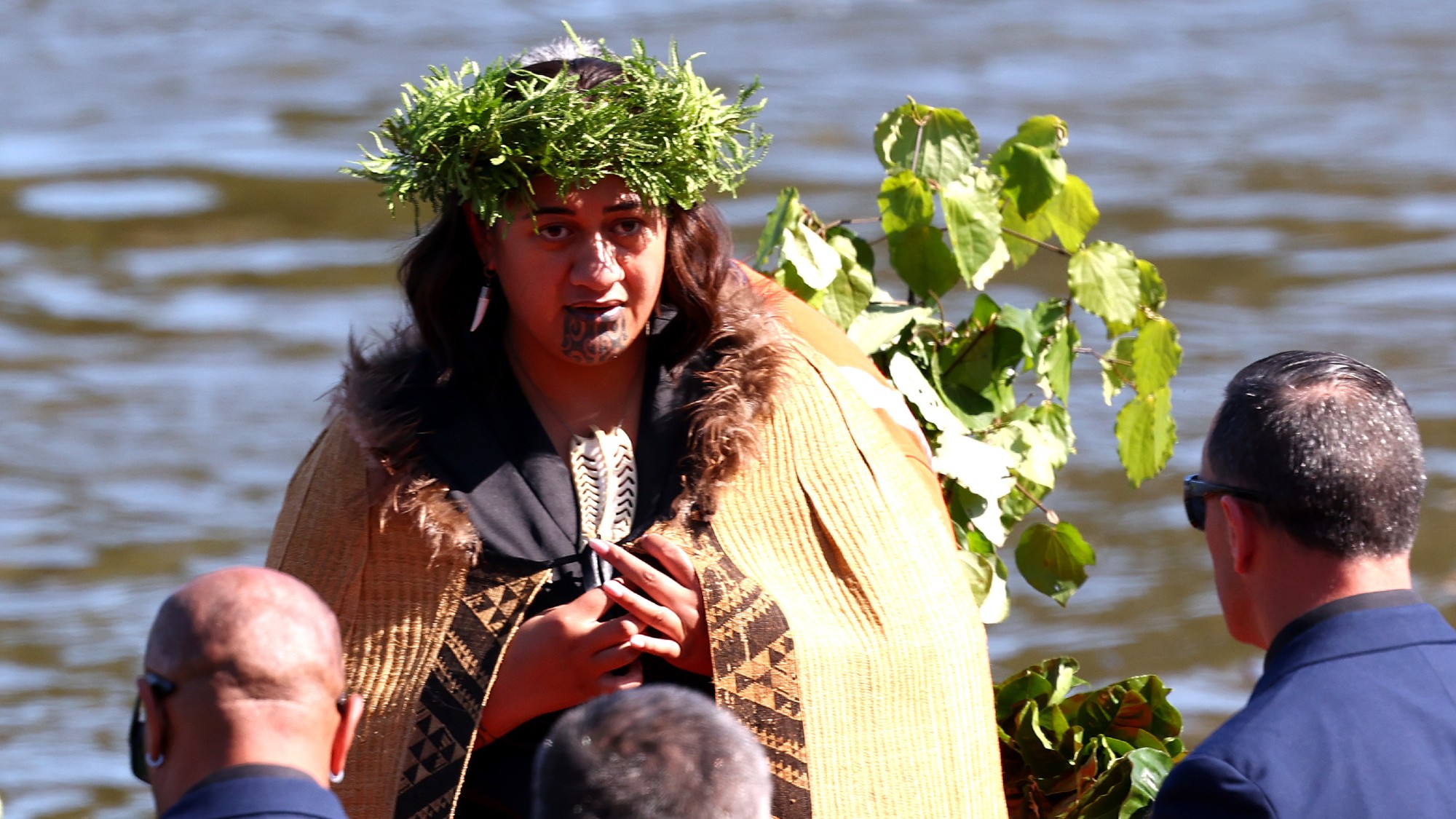'New dawn' as Māori queen is crowned
Ngā Wai Hono i te Pō's ascent to the throne comes at a thorny moment for New Zealand's indigenous community

A free daily email with the biggest news stories of the day – and the best features from TheWeek.com
You are now subscribed
Your newsletter sign-up was successful
New Zealand's Māori community has welcomed a new monarch at a moment of uncertainty and tension with the New Zealand government.
Ngā Wai Hono i te Pō, the 27-year-old daughter of King Tūheitia, was elevated to the throne ahead of her elder brothers in a vote by the royal council. Her election is "certainly a break" from traditional Māori successions, which "tend to succeed to the eldest child, usually a male", said Māori cultural advisor Karaitiana Taiuru.
The background
The youngest child of Tūheitia, who died on 30 August at the age of 69 after an 18-year reign, Ngā Wai Hono i te Pō was crowned as the eighth Māori monarch in New Zealand. She is only the second Māori queen – the first was her grandmother, Te Arikinui Dame Te Atairangikaahu.
The Week
Escape your echo chamber. Get the facts behind the news, plus analysis from multiple perspectives.

Sign up for The Week's Free Newsletters
From our morning news briefing to a weekly Good News Newsletter, get the best of The Week delivered directly to your inbox.
From our morning news briefing to a weekly Good News Newsletter, get the best of The Week delivered directly to your inbox.
The new queen was raised in Māori immersion schools and holds a master's degree in Māori customs. She also teaches kapa haka, a traditional Māori performing art.
In 2022, she travelled to London as her father's representative to meet with then-Prince Charles, saying she felt uncomfortable visiting a country that had "invaded and colonised her people's land", said The New York Times. "I feel angry, but it's only right that I feel angry," she said, adding that she has a "loud mouth, so I need to be careful".
The latest
Ngā Wai Hono i te Pō was chosen as Te Arikinui (paramount chief) and kuini (queen) by a council of 12 elders during an "elaborate ceremony" in the country's North Island on Thursday, said the BBC.
Sitting on a carved wooden throne, the new monarch was announced at a gathering at Tūrangawaewae Marae, the seat of the Kiingitanga or "Māori king movement". The movement arose in the 1800s as a way to unite the iwi (tribes) under a single leader in the face of British-led colonisation. The first king of the Māori was crowned in 1858, and at her coronation Ngā Wai Hono i te Pō was blessed with the Bible used in that ceremony.
A free daily email with the biggest news stories of the day – and the best features from TheWeek.com
Archbishop Don Tamihere used sacred oils to "bestow prestige, sacredness, power and spiritual essence upon her", said Sky News. She then accompanied her father's body in a flotilla of traditional canoes along the river as he was guided by Māori warriors to his final resting place, in a day-long ritual that The Press described as "both joyful and sombre".
The role of the Māori monarch is "largely symbolic", said NPR. As a former British colony and current member of the Commonwealth, New Zealand's official monarch is King Charles. However, the position has huge cultural significance. Thousands attended the ceremony, and there were "cheers from the crowd" with "some in attendance wiping away tears", said The New York Times.
The reaction
Ngā Wai Hono i te Pō's coronation comes at a moment of tension, amid claims that the "hard-fought rights" of New Zealand's indigenous community have been "rolled back" by the right-wing government, said the NYT.
Almost one million New Zealanders are of Māori descent, about one-fifth of the population. In a social media post, Prime Minister Christopher Luxon paid respects to the new queen, saying that she "carries forward the mantle of leadership left by her father".
However, since Luxon came to power last year, his government has scrapped a Māori health agency and sought to abandon other policies seen as a benefit to the indigenous community. This includes a rollback of anti-smoking laws, "disproportionately hurting" the Māori population, which "sees higher rates of both smoking and lung cancer", said NPR. The National Party has also curbed the use of Māori language in government organisations.
In this climate, the ascension of Ngā Wai Hono i te Pō has been welcomed. The new queen "represents a generation educated in immersion schools, allowing them to be fluent in their reo [Māori language], vocal in their rights and unashamedly proud to be Māori", said The Press.
The new queen is "inspiring" and "the new dawn", said Māori rights lawyer Annette Sykes. "Political, economic and social wellbeing for our people is at the heart of what she wants".
Chas Newkey-Burden has been part of The Week Digital team for more than a decade and a journalist for 25 years, starting out on the irreverent football weekly 90 Minutes, before moving to lifestyle magazines Loaded and Attitude. He was a columnist for The Big Issue and landed a world exclusive with David Beckham that became the weekly magazine’s bestselling issue. He now writes regularly for The Guardian, The Telegraph, The Independent, Metro, FourFourTwo and the i new site. He is also the author of a number of non-fiction books.